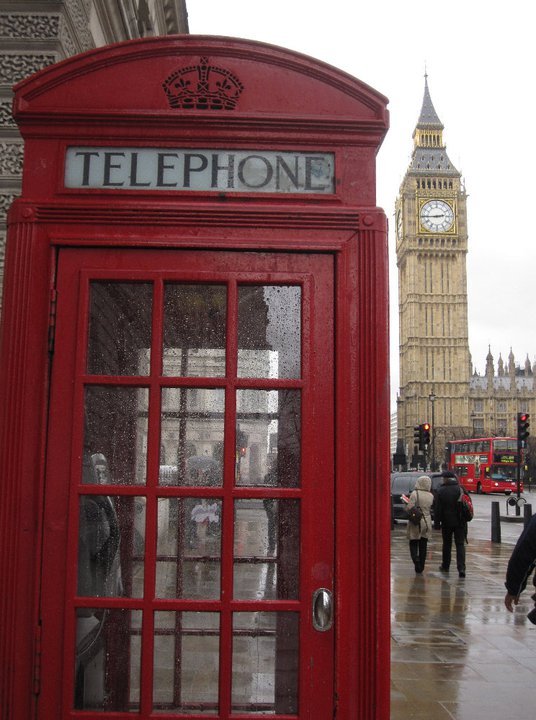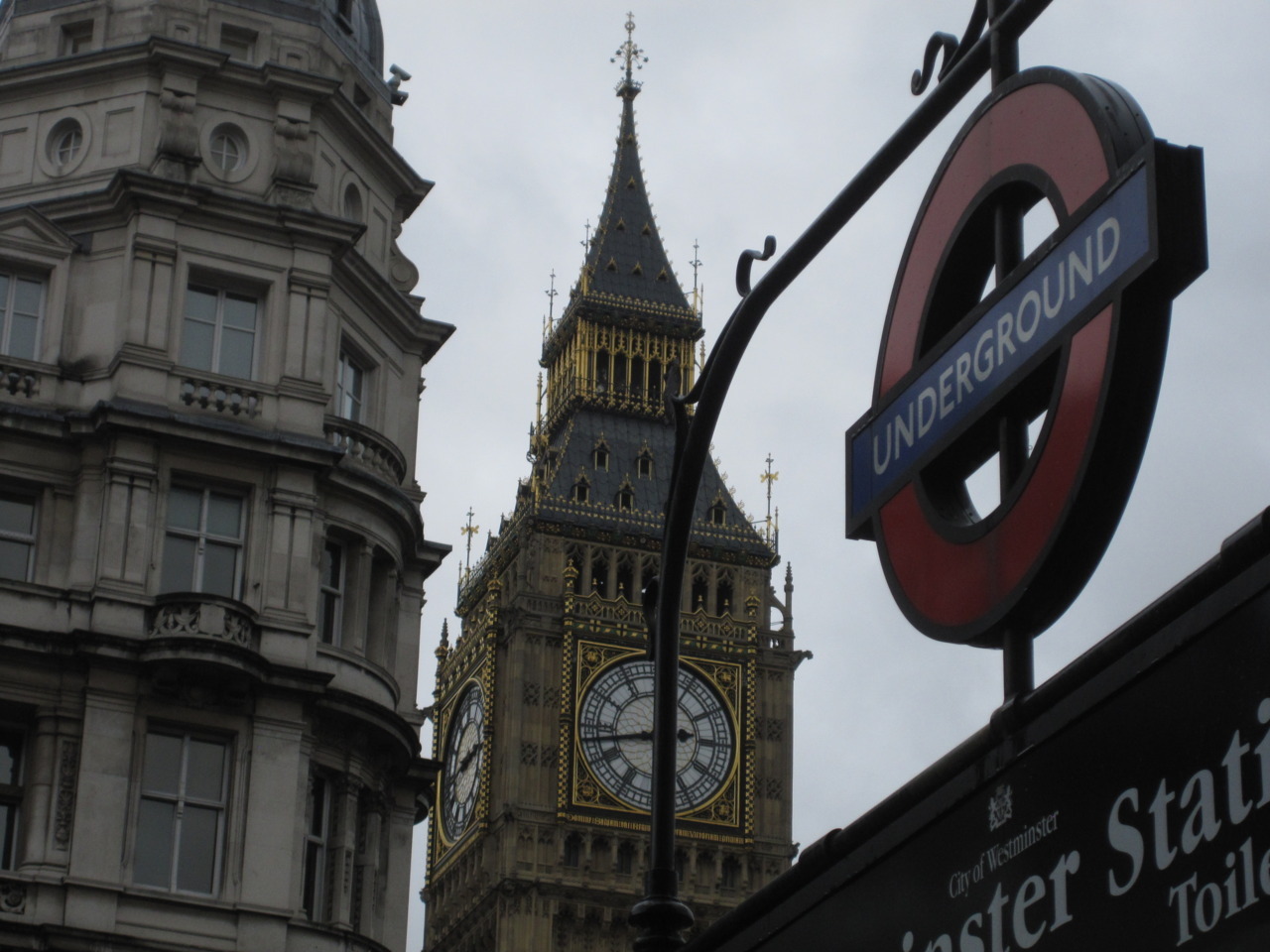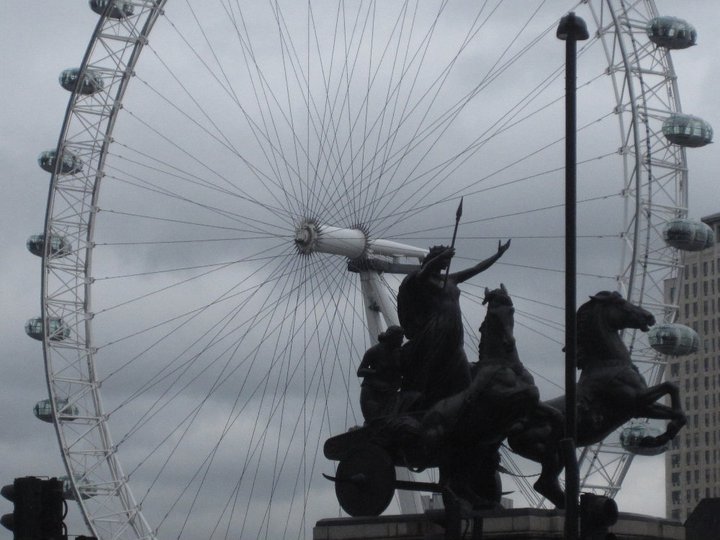Of all the days to be awake at 6am, it had to be the one when it snowed and the city shut down. These are the days you're supposed to sleep in, to stay under the covers and freeze time just as the world outside has been frozen. But no, I had to wake up at 4am and struggle with insomnia until I gave up at six. I took a shower and counted down the minutes until the cafe would open and I could go sit there for awhile and let Chris sleep.
I was, when I walked in Coffy Cafe around 7:30, the only customer aside from a guy who was sleeping on a couch who may have been homeless. A young woman was the sole employee for awhile. She was friendly in that I-don't-want-to-be-here way and sort of looked at me as if I were crazy for being out in the cold, white mess. I silently agreed with her.
I like this place. The owner is a DC teacher who took the opportunity to open a business in Columbia Heights, giving us a much needed coffee alternative to the inhumanity of Starbucks, the cramped space of Tynan's, and the not-really-a-coffee-shop-ness of Panera. The cafe is decorated with blaxploitation movie posters and a few other artifacts of the sixties and seventies, and you can hear Motown or rock music for grown-ups rather than that pretentious drivel that passes for music in many similar establishments. (I'm looking at you, Decembrists.) Crepes are the main fare; it's a nice addition to a neighborhood with not enough independent food options.
You would think that having been awake in the wee hours that I would have been watching the coverage of the Mandela memorial service, but I just couldn't. I know that CNN and MSNBC and those assholes at Fox News have turned the service into some marketing spectacle, replete with flashing graphics and a few photos that they use as if Nelson Mandela had been photographed very few times in his life. I'll catch the highlights later on.
I keep trying to write something about Mandela, but everyone's doing it and far too many people are using his death to promote their own causes. Truly great men come few in a generation, and Mandela is one of a handful from the twentieth century who deserves to be exalted by the world.
This wasn't going to be a Mandela post, but here I am sitting in a coffee shop owned by an African American woman in a part of the city that was too dangerous to walk through at night even ten years ago, and I'm finding myself amazed that I find it amazing that I even have to be amazed by this. The idea that it matters what a person's skin color is to so many people in the world blows my mind, that fifteen or twenty years ago it would have been difficult for the owner of this place to get a business loan, that it still is difficult for African Americans to get loans, well, it just doesn't make any sense to a rational mind.
Nor does apartheid, the legacy of colonialism, or this global economic system we've built on the exploitation of human beings. That laws could be made banning rights for one race or another and the global community accepted it for so long, that President Reagan vetoed economic sanctions against South Africa, that Republicans continue to this day to call Mandela a terrorist for daring to fight against oppression, that black South Africans continue to be oppressed by poverty and economic inequality, that blacks in the United States are as well, that White America has developed a deep hatred for our black president because he represents a threat to white domination....none of this makes any sense to me. (Don't give me a history lesson; I'm thinking abstractly.) Apartheid happened in my lifetime - not in a history book. Some of the people who supported apartheid in the US government are still in the US government, and they're the ones who are saying negative things about Mandela when the rest of the world is celebrating his life and his accomplishments.
I mean, what does it take to realize you're on the WRONG SIDE OF HISTORY?
That people like Mandela and Dr. King and Gandhi continue to be born, that apartheid did end, that Barack Obama is President of the United States, these are all good reasons not to shrug your shoulders and say, "It's always been this way." Because no, it hasn't - these are indicators of progress, of change. Yeah, it's molasses slow and frustrating and you have to deal with theopposition nutjobs assholes who fight to keep it the way it is or even take it backwards, but it IS progress, and every little step alleviates some of the suffering of others in the future.
That's why we celebrate Nelson Mandela today on, coincidentally, International Human Rights Day, to remember, to push forward, to be inspired.
I was, when I walked in Coffy Cafe around 7:30, the only customer aside from a guy who was sleeping on a couch who may have been homeless. A young woman was the sole employee for awhile. She was friendly in that I-don't-want-to-be-here way and sort of looked at me as if I were crazy for being out in the cold, white mess. I silently agreed with her.
I like this place. The owner is a DC teacher who took the opportunity to open a business in Columbia Heights, giving us a much needed coffee alternative to the inhumanity of Starbucks, the cramped space of Tynan's, and the not-really-a-coffee-shop-ness of Panera. The cafe is decorated with blaxploitation movie posters and a few other artifacts of the sixties and seventies, and you can hear Motown or rock music for grown-ups rather than that pretentious drivel that passes for music in many similar establishments. (I'm looking at you, Decembrists.) Crepes are the main fare; it's a nice addition to a neighborhood with not enough independent food options.
You would think that having been awake in the wee hours that I would have been watching the coverage of the Mandela memorial service, but I just couldn't. I know that CNN and MSNBC and those assholes at Fox News have turned the service into some marketing spectacle, replete with flashing graphics and a few photos that they use as if Nelson Mandela had been photographed very few times in his life. I'll catch the highlights later on.
I keep trying to write something about Mandela, but everyone's doing it and far too many people are using his death to promote their own causes. Truly great men come few in a generation, and Mandela is one of a handful from the twentieth century who deserves to be exalted by the world.
This wasn't going to be a Mandela post, but here I am sitting in a coffee shop owned by an African American woman in a part of the city that was too dangerous to walk through at night even ten years ago, and I'm finding myself amazed that I find it amazing that I even have to be amazed by this. The idea that it matters what a person's skin color is to so many people in the world blows my mind, that fifteen or twenty years ago it would have been difficult for the owner of this place to get a business loan, that it still is difficult for African Americans to get loans, well, it just doesn't make any sense to a rational mind.
Nor does apartheid, the legacy of colonialism, or this global economic system we've built on the exploitation of human beings. That laws could be made banning rights for one race or another and the global community accepted it for so long, that President Reagan vetoed economic sanctions against South Africa, that Republicans continue to this day to call Mandela a terrorist for daring to fight against oppression, that black South Africans continue to be oppressed by poverty and economic inequality, that blacks in the United States are as well, that White America has developed a deep hatred for our black president because he represents a threat to white domination....none of this makes any sense to me. (Don't give me a history lesson; I'm thinking abstractly.) Apartheid happened in my lifetime - not in a history book. Some of the people who supported apartheid in the US government are still in the US government, and they're the ones who are saying negative things about Mandela when the rest of the world is celebrating his life and his accomplishments.
I mean, what does it take to realize you're on the WRONG SIDE OF HISTORY?
That people like Mandela and Dr. King and Gandhi continue to be born, that apartheid did end, that Barack Obama is President of the United States, these are all good reasons not to shrug your shoulders and say, "It's always been this way." Because no, it hasn't - these are indicators of progress, of change. Yeah, it's molasses slow and frustrating and you have to deal with the
That's why we celebrate Nelson Mandela today on, coincidentally, International Human Rights Day, to remember, to push forward, to be inspired.

 "Here at long last one was in a position not to give a damn for all
conventions, here was a new kind of freedom which until then one had
only found in dreams!" - Karen Blixen,
"Here at long last one was in a position not to give a damn for all
conventions, here was a new kind of freedom which until then one had
only found in dreams!" - Karen Blixen, 

 In the winter, I cook a lot of soup. I've literally eaten a gallon of my last batch over the last three days. The great thing about soup is that you can throw in practically anything and it tastes good. Here are some ingredients I frequently use in vegetable soups:
In the winter, I cook a lot of soup. I've literally eaten a gallon of my last batch over the last three days. The great thing about soup is that you can throw in practically anything and it tastes good. Here are some ingredients I frequently use in vegetable soups:





